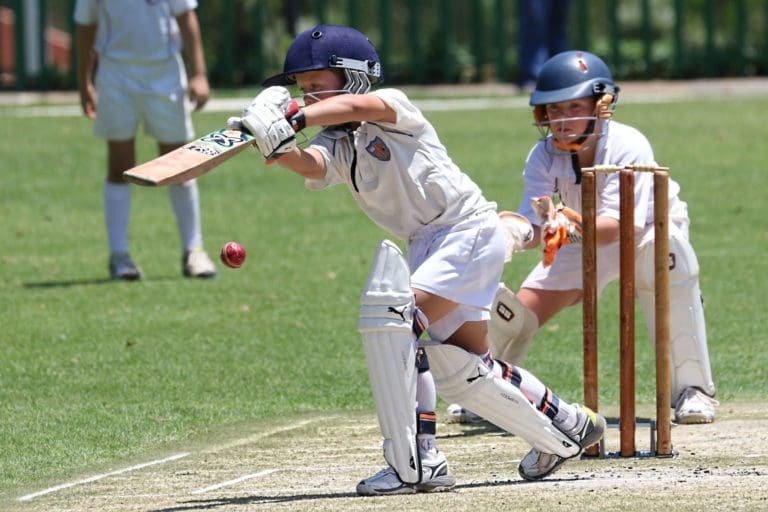
Cricket Psychology Tips: Control the Controllables
An essential element of Mental Toughness is “control”
So far, the recurring prominent themes in previous entries have revolved around the lockdown, coronavirus and the implications that this has had on athletes. However, now I want to move away from focusing on that ‘C’ word to focus on the another one – control…
Uncontrolled Concern
Casting my mind back to my previous blogs, I have highlighted how this recent period can result in thoughts which are difficult to process:
- When will normality return?
- Will my me and my family be safe?
Cricketers will also find themselves processing these thoughts and may also face further performance-related questions:
- When will I be able to play again?
- Will I play as well as before this?
Any of these thoughts, if not addressed adequately, can cause anxiety in a person. Do you notice anything about the questions?
These concerns cannot be controlled by you.
They can’t be simply wished away nor prevented from occurring in the first place. Unfortunately, there are some aspects of your personal and sporting life that you simply can’t control, but this doesn’t stop these kinds of concerns from occurring and disrupting our mindset.
Coronavirus aside, worrying about your personal performance, your team’s performance or other teams’ performances are just a few concerns a cricketer will more than likely face over the course of the season, with some more controllable than others. For example, you can’t control how your teammates perform, or the rain that can consign you to an afternoon in the shed the opposition call a pavilion, and you definitely can’t control the pitch that is seemingly a cow field through the week! Feelings all too familiar to a Saturday league player, right…?
However, there are concerns that you CAN control. By doing so, a positive mindset can be maintained, helping prevent negative, even defeatist thoughts, which promote anxiety.
Control the ‘Controllables’
I have touched on this concept before, when talking about the benefits of routine. By aiming to control what you can, a sense of empowerment can be created. In short, when focussing on the controllables, anxiety is minimised and confidence is improved due to you feeling more in control of the factors in your life, such as your preparation and not outside events.
Now let’s not focus on training with the full team as it’s not allowed (another uncontrollable) but rather focus on you and your personal game.
To start, make a list of the thing that you feel that you can control in wider life. This could be anything that you can influence!
Such as: –
- Living a healthy lifestyle (eating healthy, staying active)
- Effective time management
- Creating goals and keeping to them
Everyone’s lists will be different, and some may find it hard to make a list. But this isn’t as negative as you would think. More on this shortly.
Secondly, I want you to write a list of the things you feel in control of in your game, both on and off the field. For example, I feel that my list includes: –
- My run up
- How I practice in the nets
- Who I practice with and how long for
- My pre-match routine
The list could go on but I hope that you get the picture. Again, if your list is short then don’t panic as this doesn’t mean that you aren’t in control or a bad player! It may even make this next task easier.
Practice Makes Perfect (Control)
By starting with the performance-related controllables that you already are in control of, you are identifying those that will be easy to master complete control over. A further benefit of starting with a list of the variables that you can control should provide the perfect starting ground to progress.
To go further, you can focus on those concerns that you want to control but haven’t quite achieved yet, as long as they are in your ability to do so. You may feel that you can control the speed of your run up, but you haven’t got complete control of due to a tendency to over/underrun your run up. For a batsman, it could be that shot you have mastered in the nets yet it has always let you down or eluded you in a match scenario.
The common denominator in improving this control is practice.
To ensure that I was a master of my run up, it would involve me practising in the nets and on the field prior to a match. It could involve rehearsing different lengths or different types of balls from my usual repertoire. Should it be for how you practice in the nets, it could involve you writing down drills, or shots you want to add to your repertoire to be able to execute in a future match.
Naturally you should do what you feel will help develop that level of control. Your peers can help you identify your strengths, and your coach might be able to help you with ideas or even integrate ideas into sessions. After all, what helps you may help others in the team! It can be easy to focus upon weaknesses in one another as well as ourselves, but identifying strengths is just as, if not more, important than weaknesses. In saying so, neglecting weaknesses shouldn’t happen. Just keep in mind that a little bit of self-love and appreciation can go a long way to improving your confidence, performance and enjoyment.
If you’d like to learn more about controlling the controllable why not sign up to the “The Mental Edge” where you’ll receive regular tips and advice.
To get in touch for one 2 one Sports Psychology Coaching with a Tom Short, Mental Skills Performance Coach and Sports Counsellor , based near Northallerton, North Yorkshire – Telephone, SKYPE or online calls are available.

Best Wishes
Tom Short
Mental Skills Performance Coach and Sports Counsellor located near Northallerton, North Yorkshire. Has a keen interest in team sports where he enjoys helping athletes get the most from their talents.







